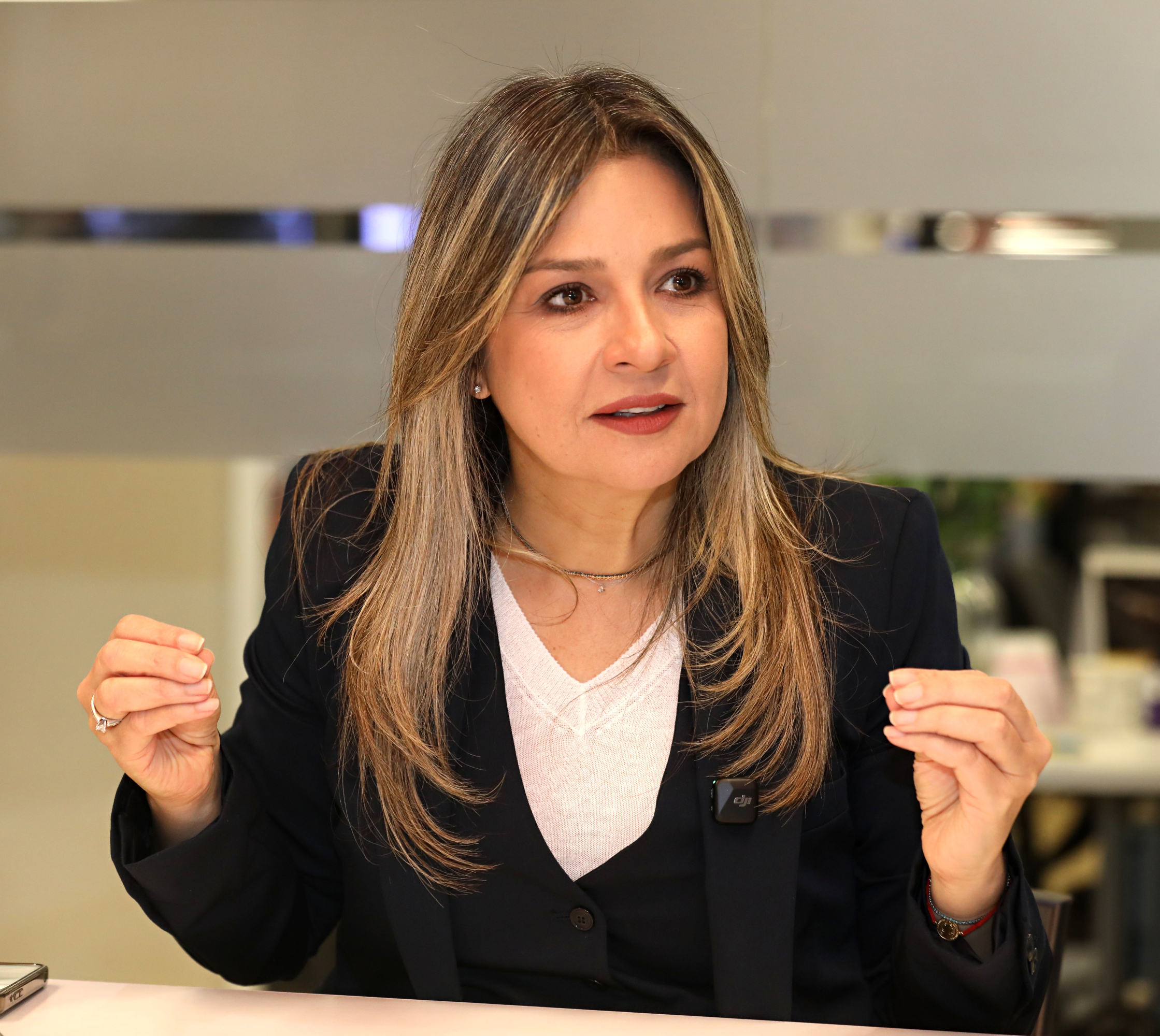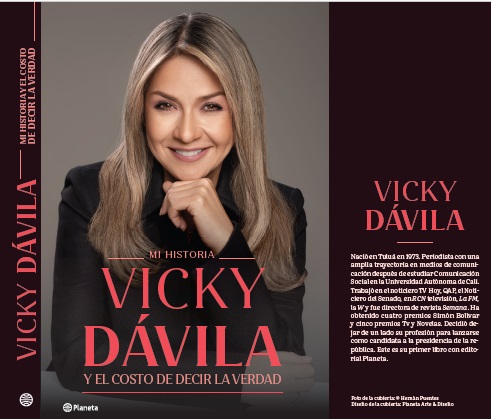Vicky Dávila presented her autobiographical book: "The day I put the brakes on my dad, I learned not to fear anything."

At the Bogotá Book Fair, former director of Semana and presidential candidate Vicky Dávila presented her autobiographical book, "My Story and the Cost of Telling the Truth."
In a 45-minute conversation, Dávila discussed the contents of his book and shared details about how he lost "his fear of confronting power."

Vicky Dávila, Colombia's presidential candidate for 2026. Photo: Milton Diaz / El Tiempo
" The day I finally put the brakes on my dad, perhaps the person I've been most afraid of in my life, that day I learned not to be afraid of anything . And yes, if you're scared, you have to deal with it. I've always followed a mantra: you have to do what's right, not what's convenient," she expressed in the Filbo discussion.
The book In Vicky Dávila, My Story and the Cost of Telling the Truth, the journalist talks about her childhood in Tuluá, her difficult relationship with her father, her experience in the media, and her new role as a pre-candidate.

'Vicky Dávila, my story and the cost of telling the truth' Photo: Editorial Planeta
And so one of the sections of the first chapter goes: "He told me he didn't hit her, but he treated her very badly and even threatened her. I was filled with rage. By coincidence, that same afternoon my dad came to visit us and I confronted him for the first time and definitively. I was eighteen years old and I was in the first semester of Journalism at the Autonomous University of Cali. He was big, tall, and I was short, but even so, I stood up to him, face to face, like a fine little rooster, I looked him straight in the eyes so he would never forget it and I said to him: "Dad, you are a son of a bitch. You are not going to mistreat my mom again." Furious, he came at me and made a gesture of hitting me, right there in the street, but I stayed there, standing defiant."
Regarding the move toward the Casa de Nariño, Dávila explained at the launch that he wanted to enter the political conversation because "the day I began to understand how rotten the system is, and how inconvenient it would be for Colombia to repeat the same recipe and persist in a situation that would lead us to an abyss, I said, if I can help rescue Colombia, I will do it."
Juan Pablo Penagos Ramirez
eltiempo





